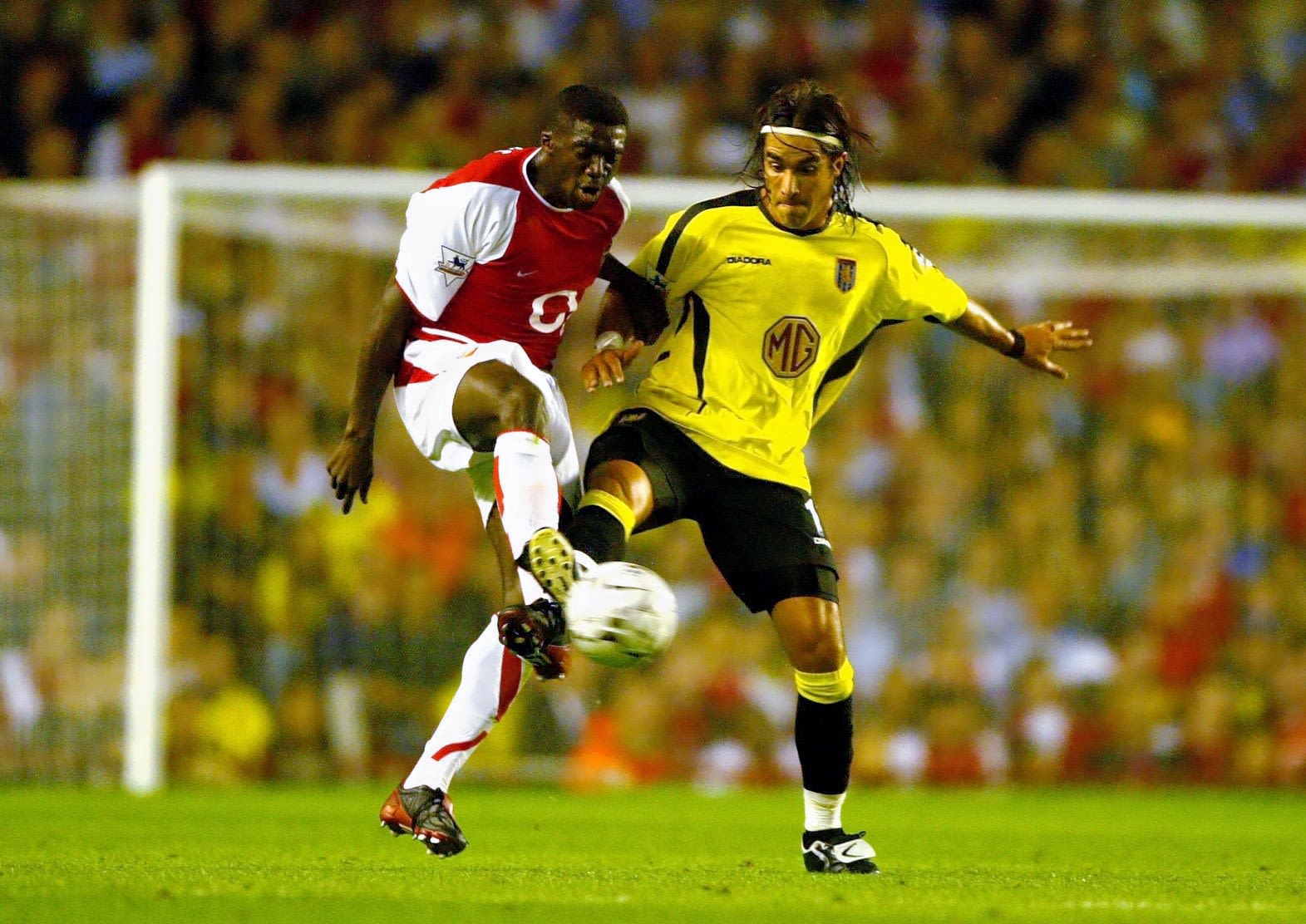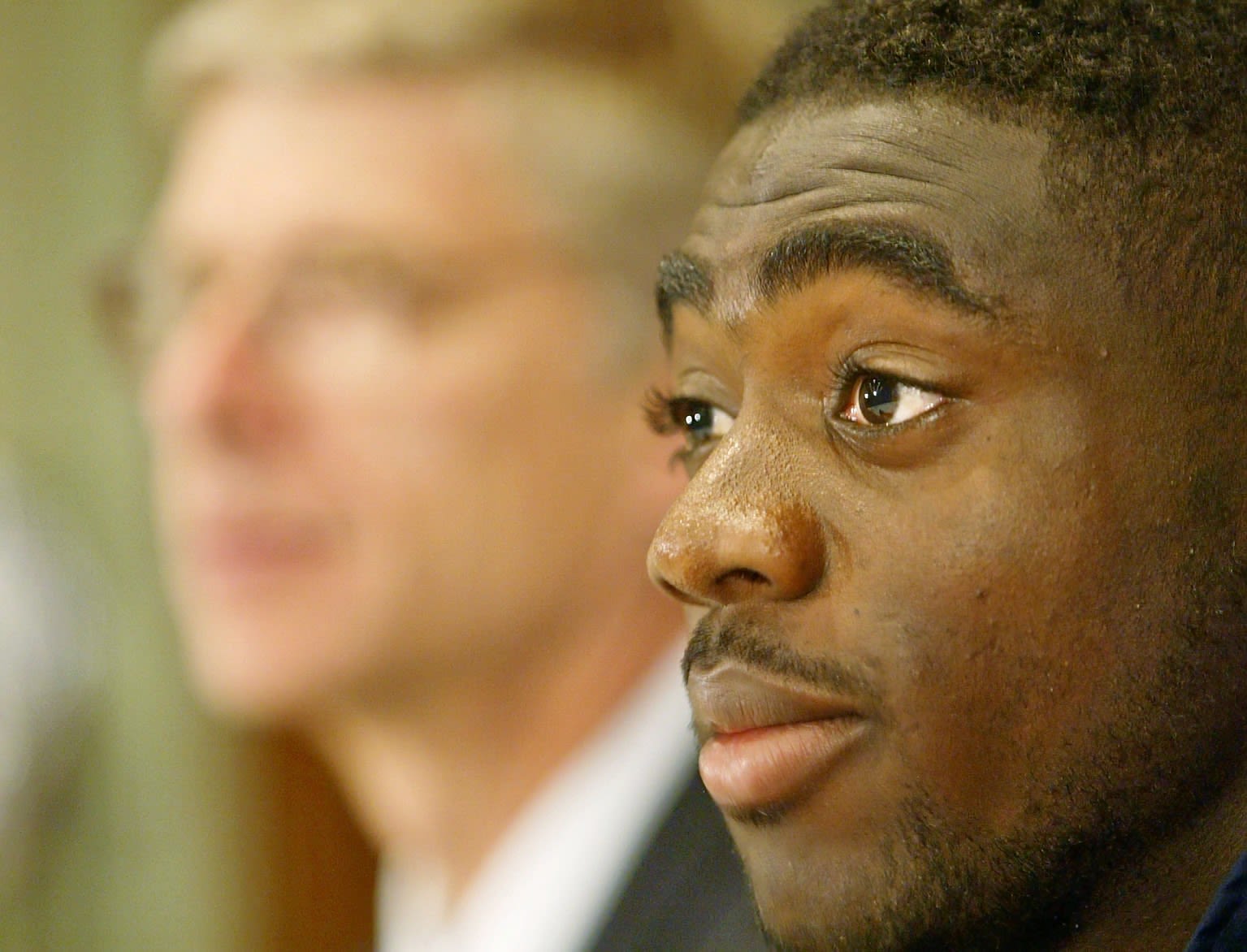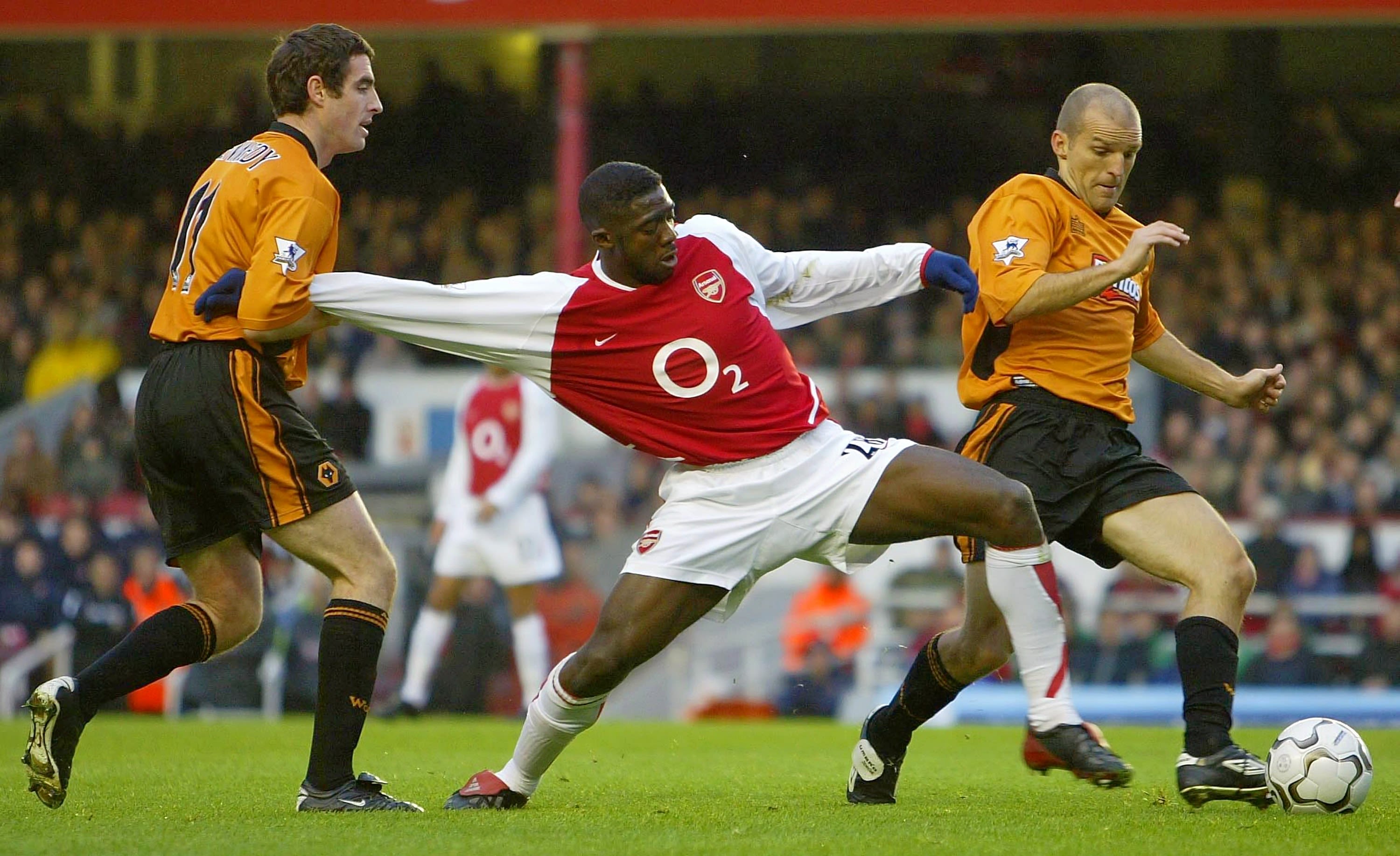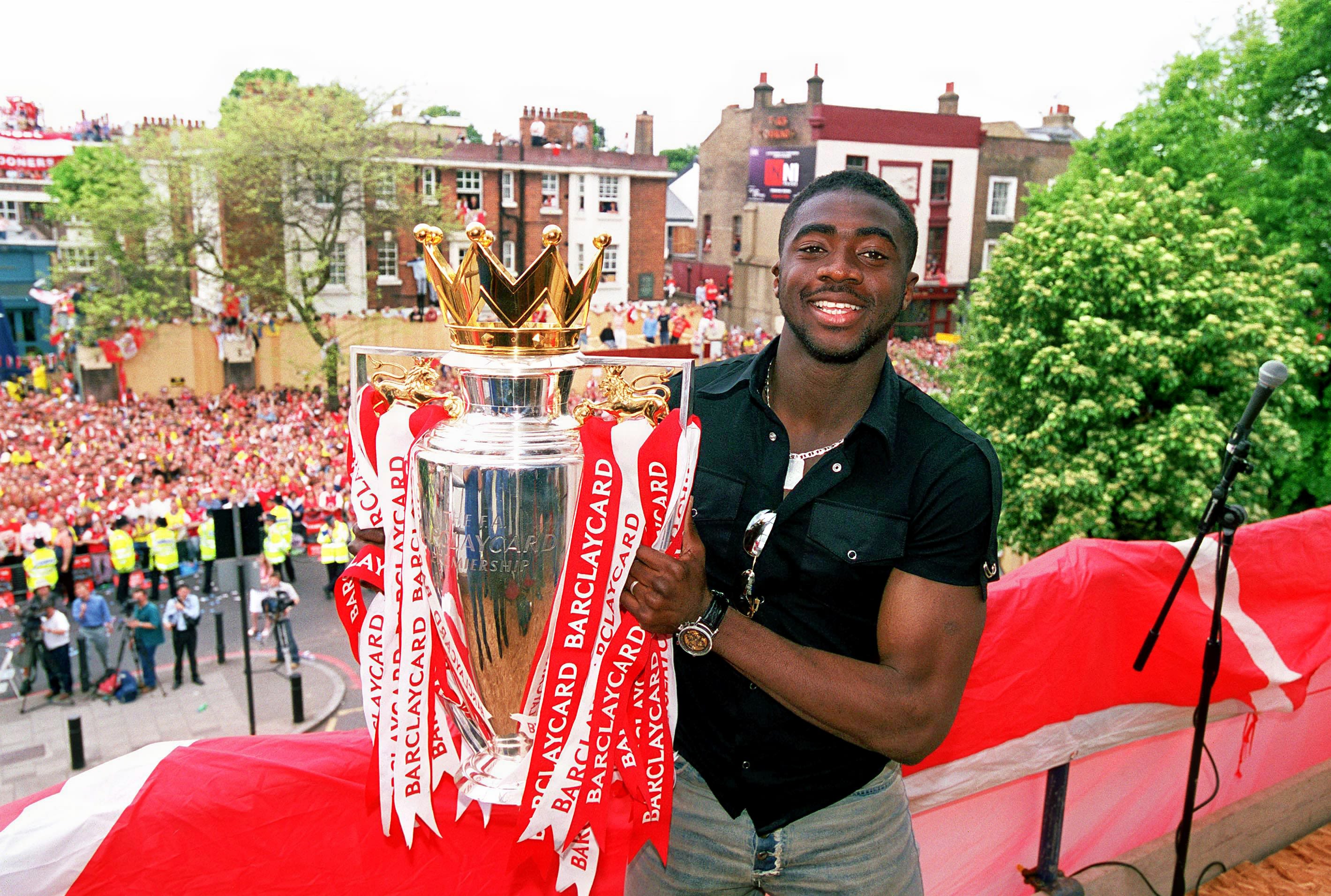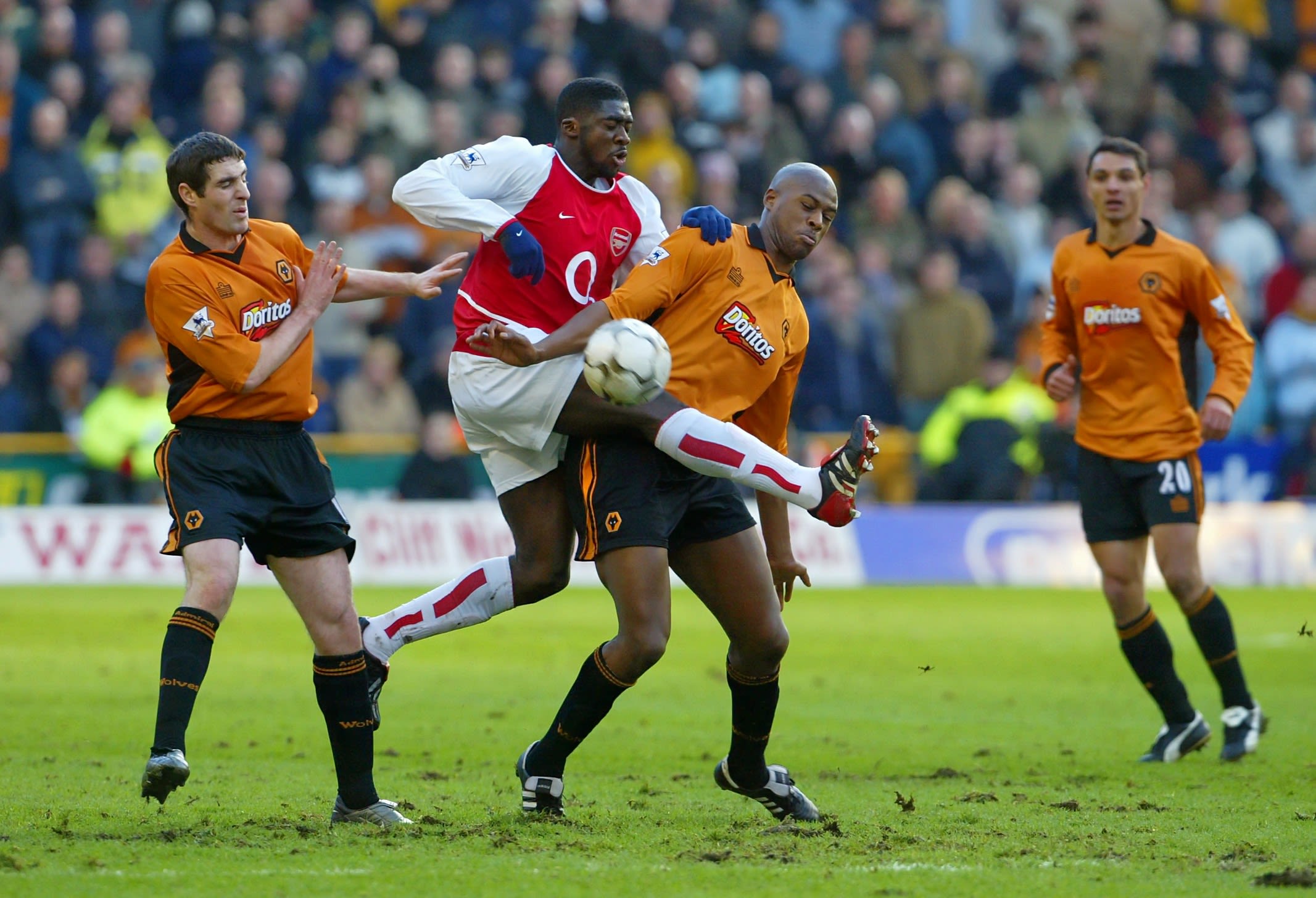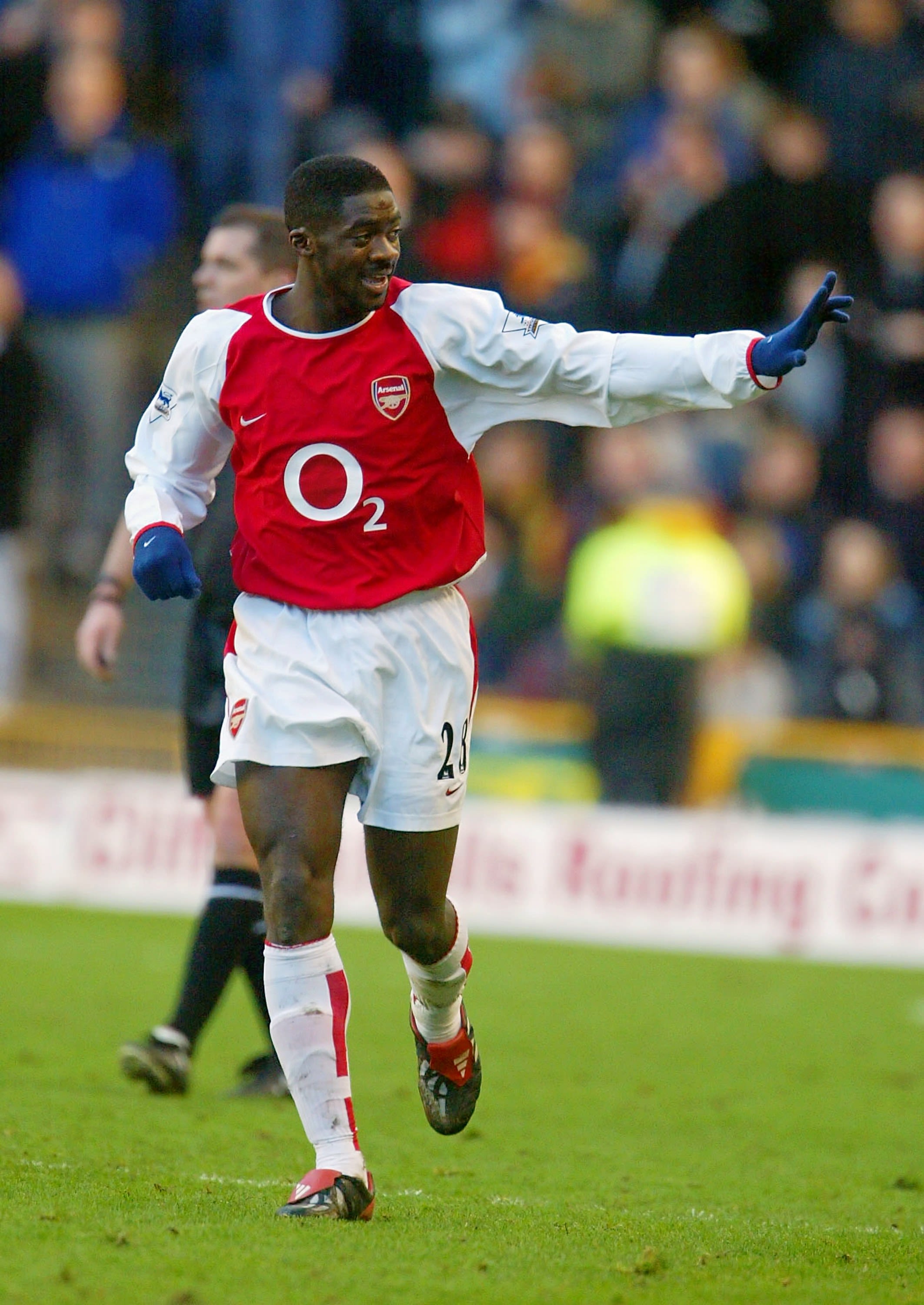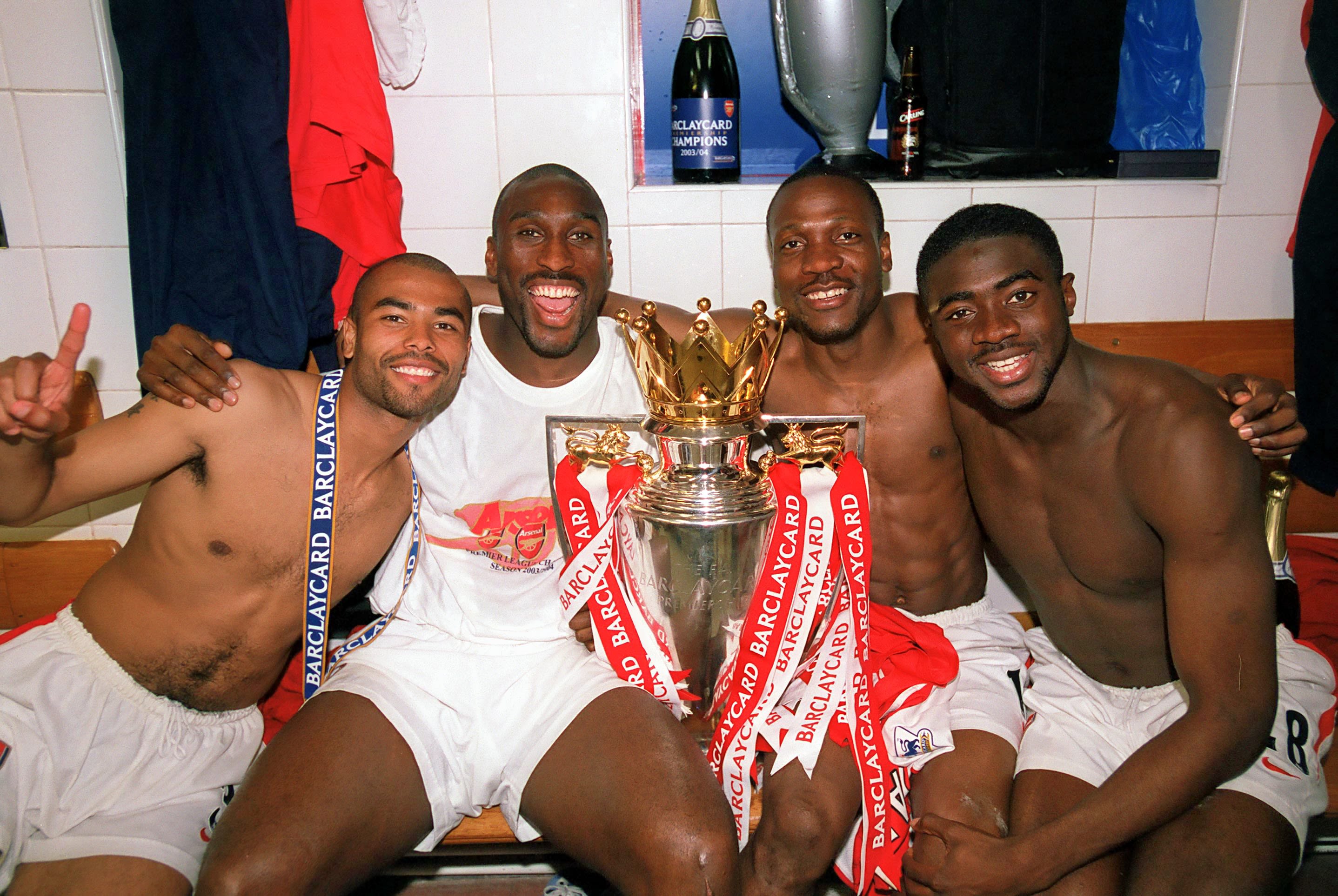Tales from the Invincibles
KOLO TOURE
WE CATCH UP WITH THE MEMBERS OF THE 2003/04 INVINCIBLE TITLE- WINNING SQUAD, TO ASK THEM ABOUT THEIR MEMORIES AND HIGHLIGHTS OF A CAMPAIGN LIKE NO OTHER.
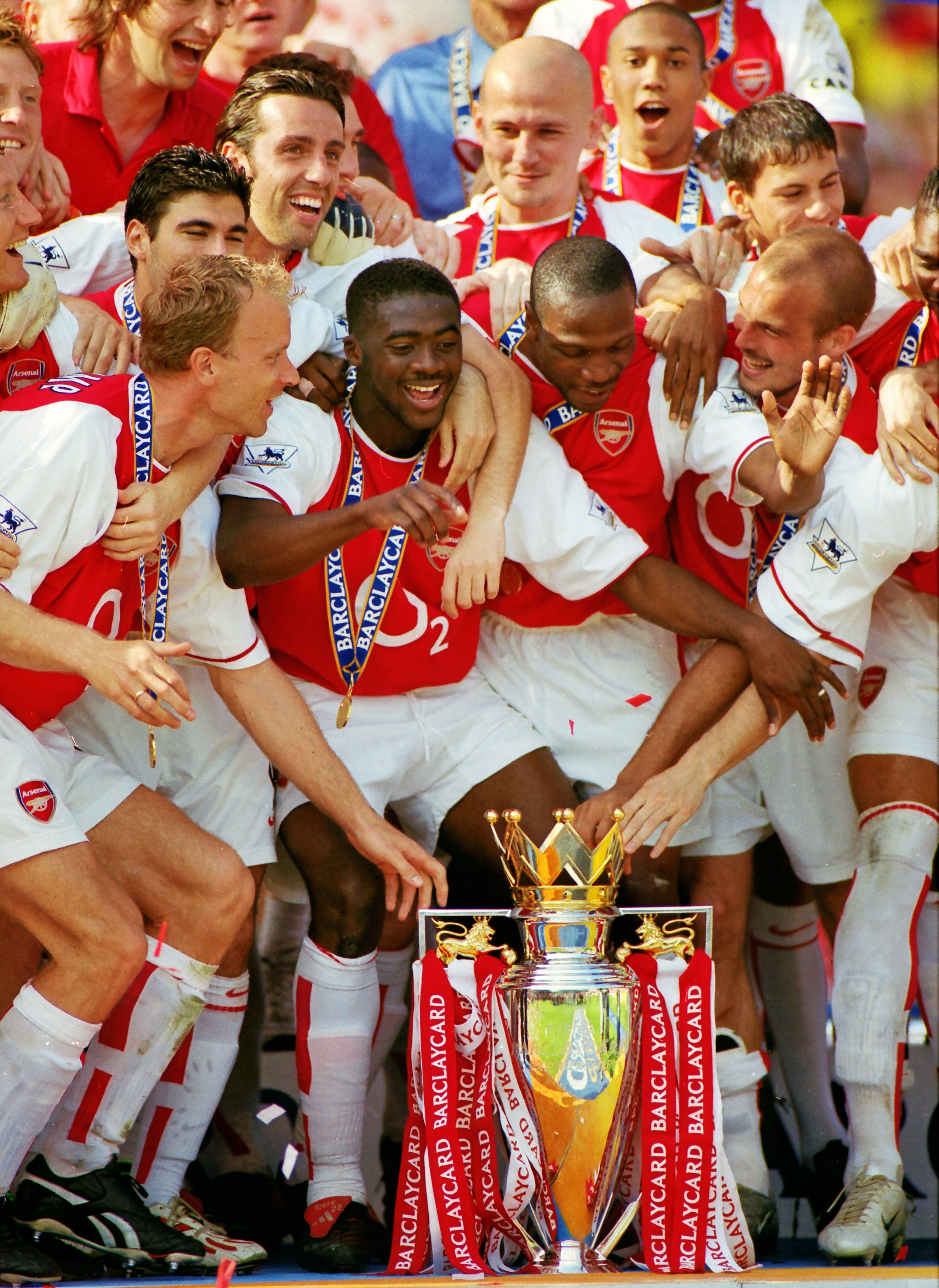
Kolo Toure really came of age in the unbeaten season. Having joined the club as a complete unknown from Ivory Coast side ASEC Mimomas in February 2002, he made his debut at the start of 2002/03 and was used in various positions that season.
But at the start of the 2003/04 campaign, he started in the heart of the defence – and he never looked back. He played in all but one league game, and was shortlisted for the PFA Young Player of the Year award after forming a formidable partnership with Sol Campbell.
Kolo went on to play 326 times for us over seven years before winning further league titles with Manchester City and Celtic, with a spell at Liverpool in between. He amassed 120 caps for Ivory Coast, and went into coaching after calling time on his playing days.
We caught up with Kolo on a recent visit to the Emirates to reflect upon his huge contribution to the Invincible season.
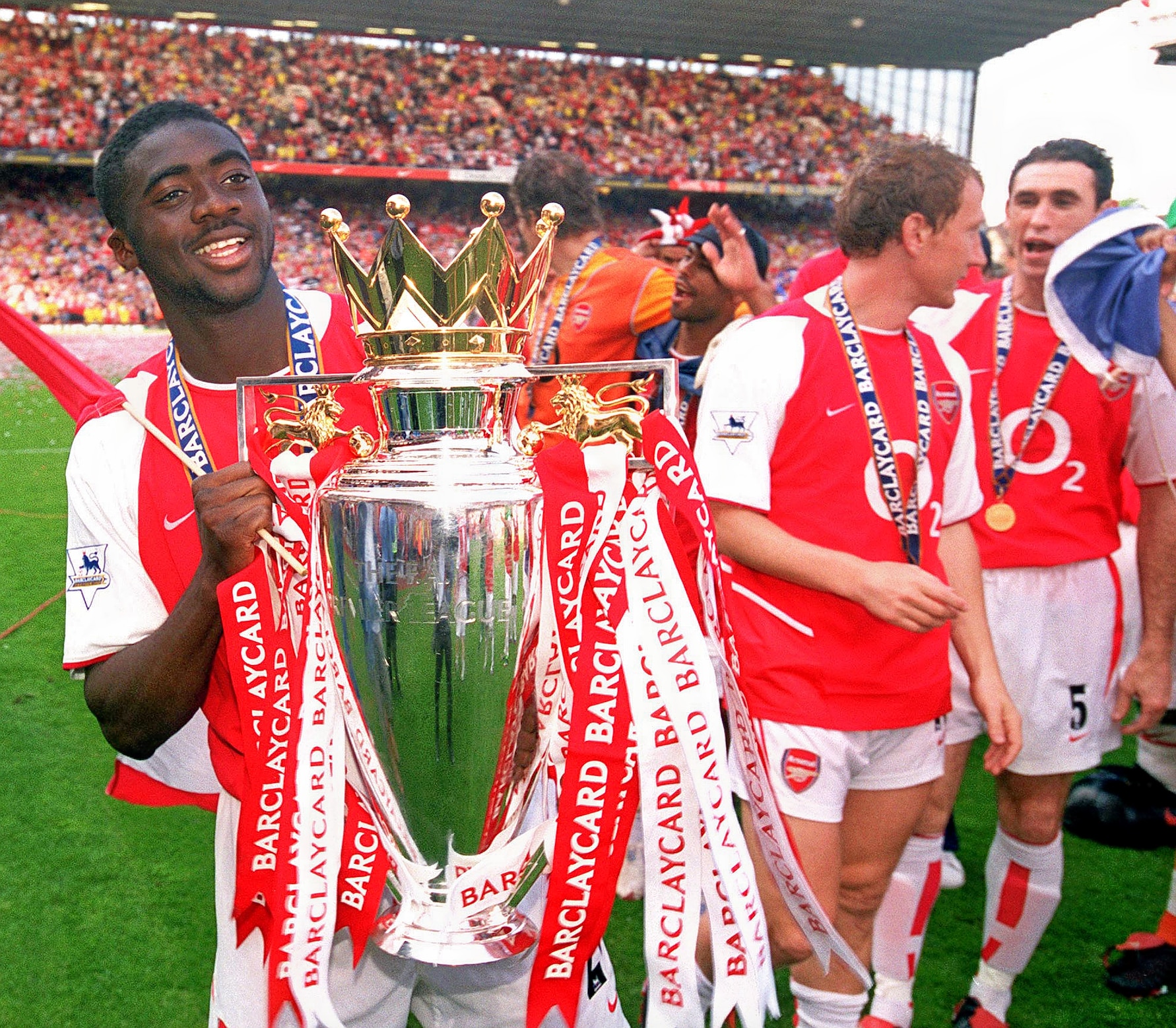
You first played at centre-back for us during the 2003/04 pre-season. Did the manager tell you that would be your new permanent position?
Yes, he did. The previous season was an adaptation season for me at Arsenal basically, and the manager used me at right back, winger, central midfield – everywhere! Everywhere apart from centre back. I knew centre-back was my best position, but I wanted him to get confidence in me first.
I was willing to play in different positions that first season, and when the next season came around, Martin Keown got injured and I had a conversation with the manager and said I wanted to work as a defender.
He said he would help to develop me, but warned me there was a lot of competition in that position. But when he first put me there, that’s when everything really started for me. It was great, because it was the position I had learned as a young player. I felt strongest there.
In 2003/04 you mainly played alongside Sol Campbell. How much did you learn from him?
I learned a lot. Sol was really powerful, but more importantly he was a great guy with a big heart. He was always looking after me while I was playing – he was like my big brother on the pitch, always talking to me, covering me.
He was really strong in the air, so any time the ball came in the air he would attack it and let me cover behind him. We had a really good connection. We knew each other’s strengths really well and he was fantastic for me. He was the leader of the defence and he supported me in that position a lot.
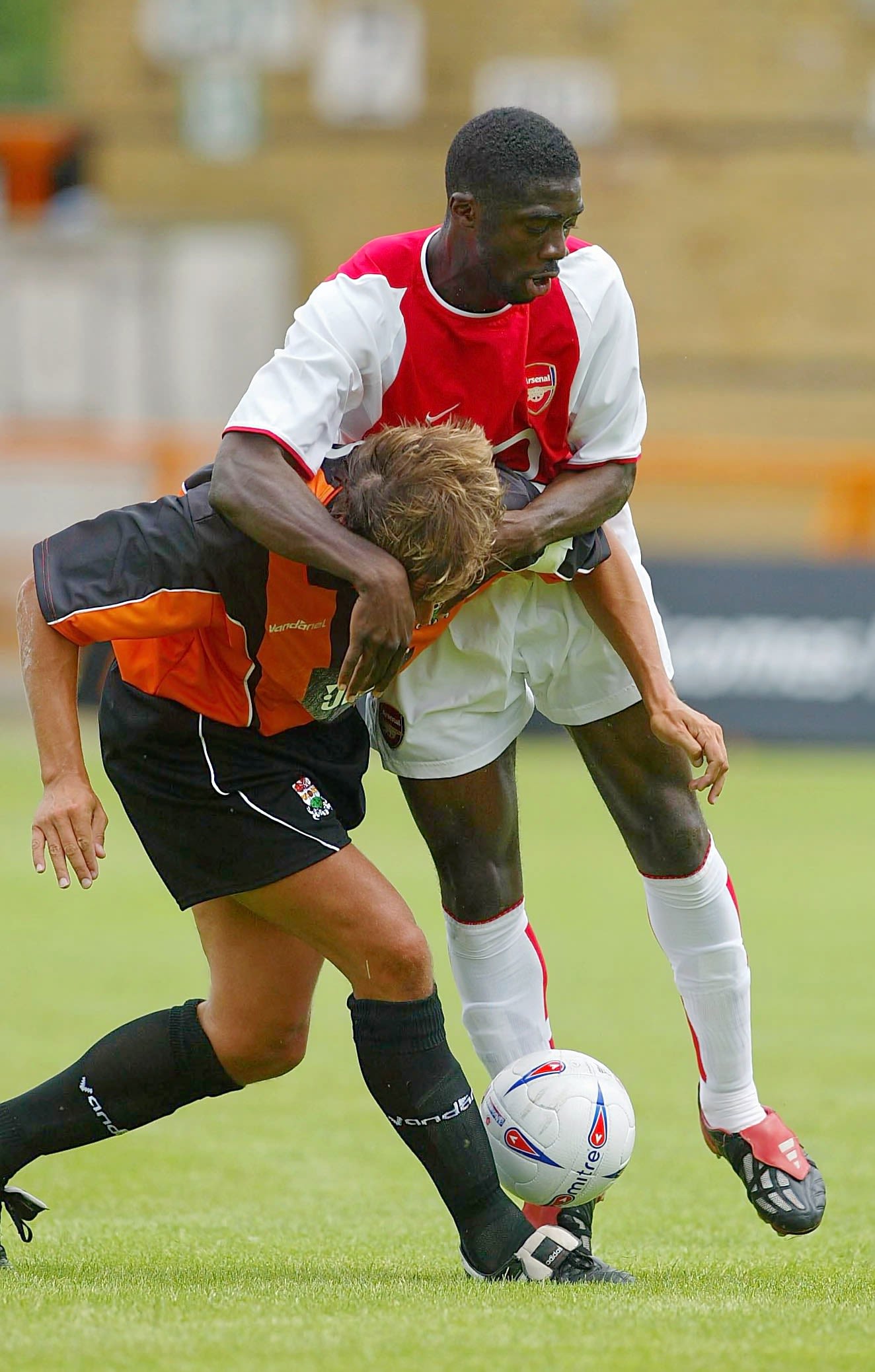
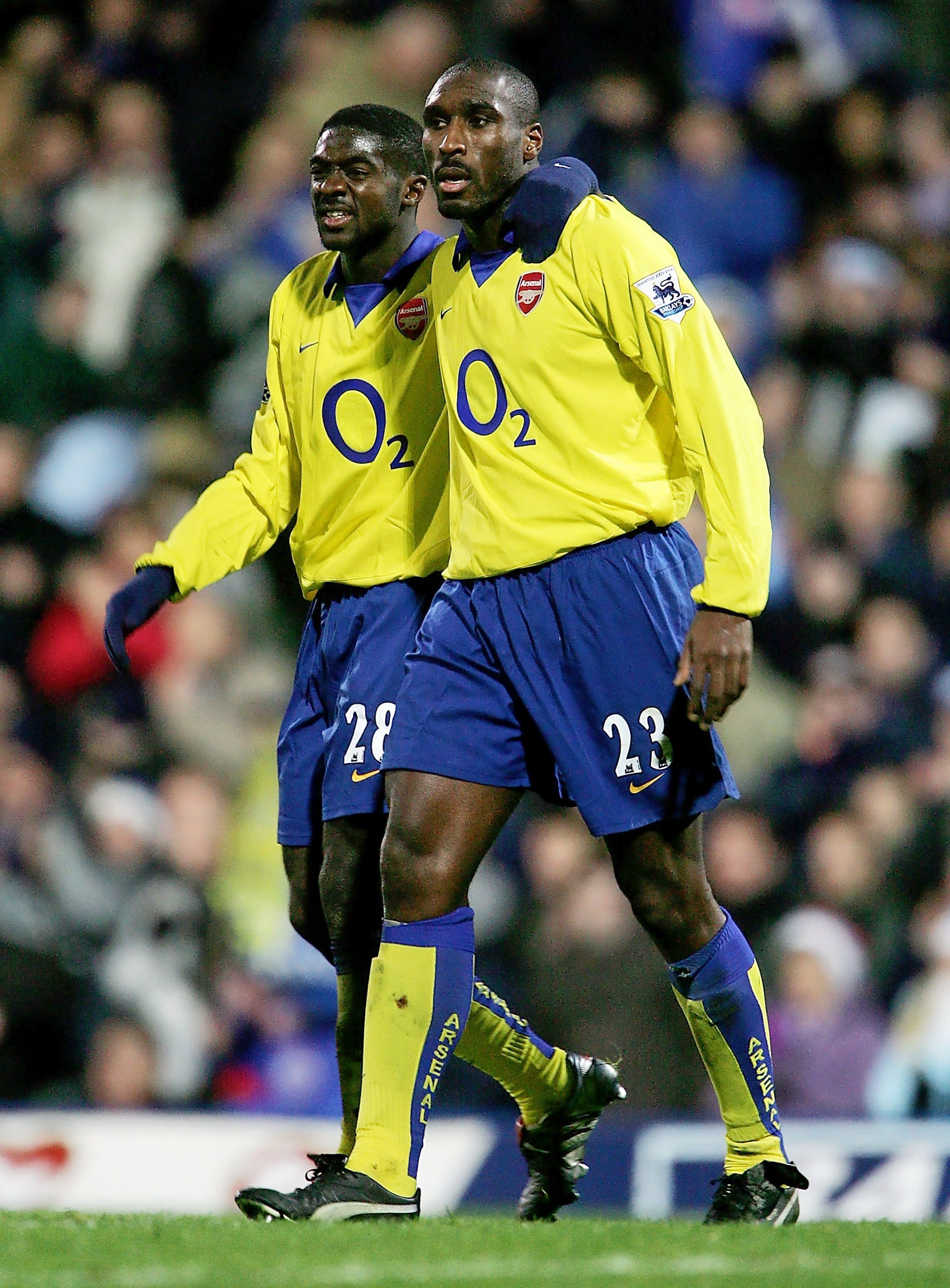
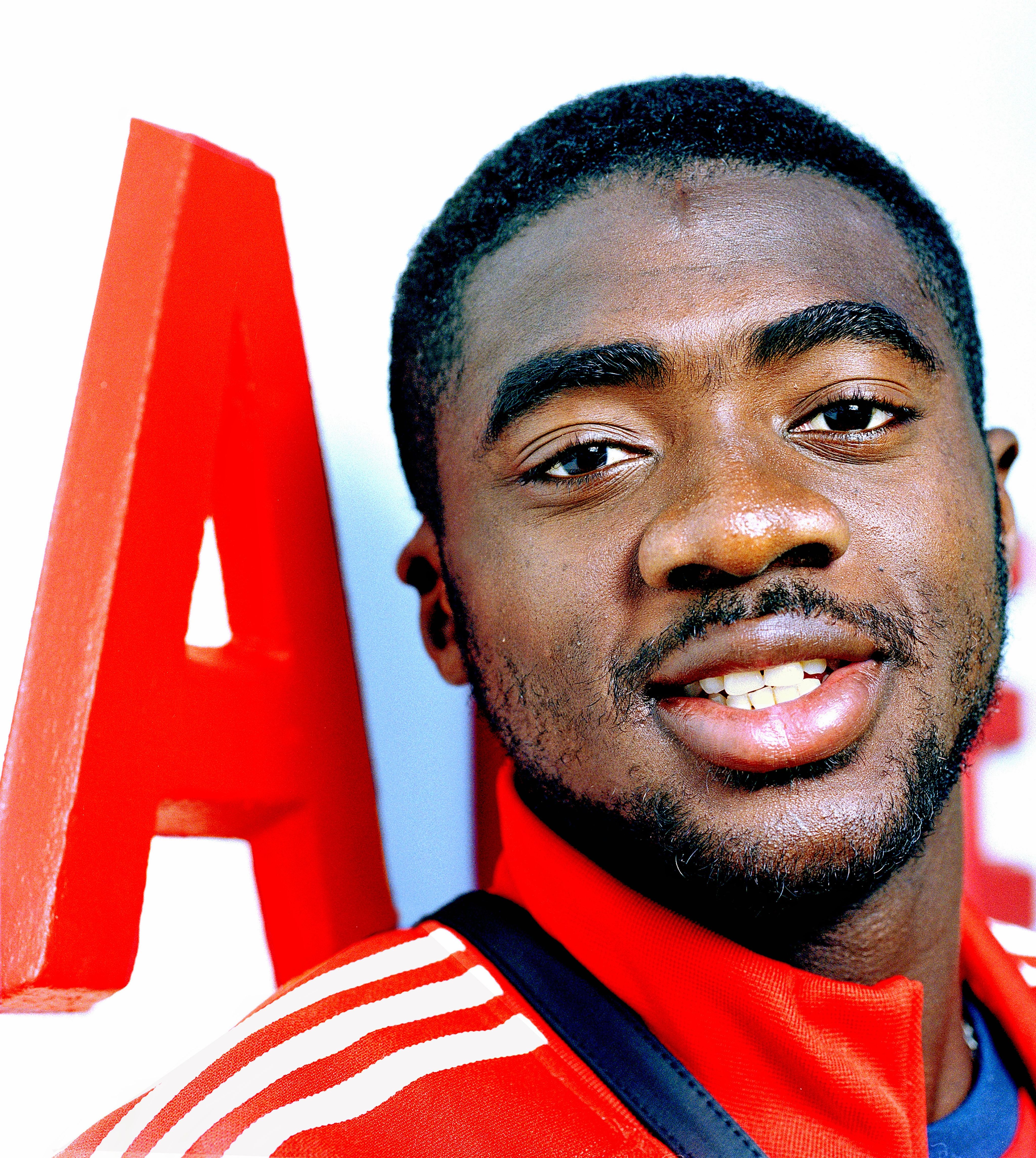
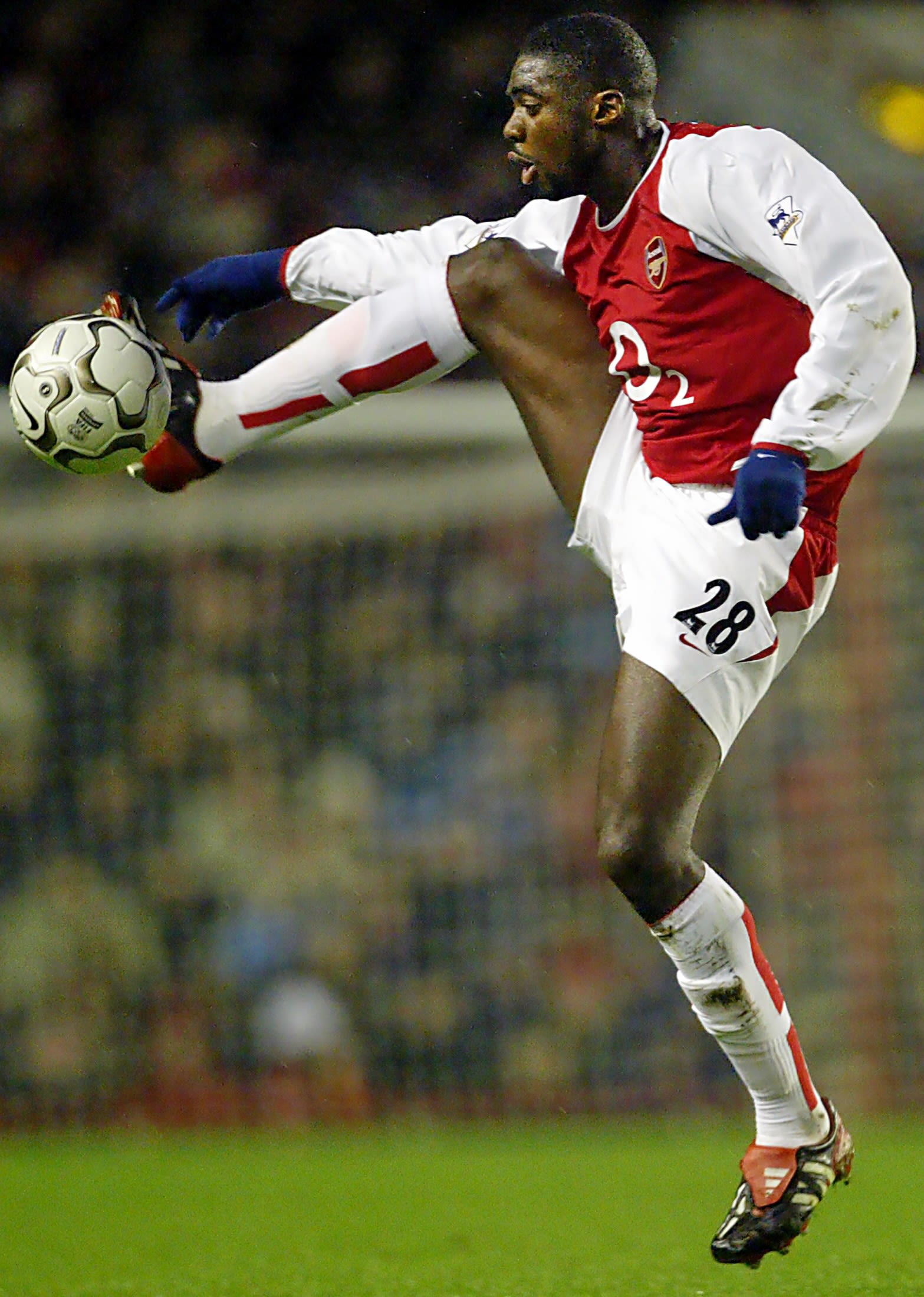
And Martin Keown had a big influence on you as well, didn’t he?
Yes, and I really want to talk about this, because it meant a lot to me. Martin was coming to the end of his career, but he was a great support, and gave me the platform to express myself. He never saw me as a threat for him, or a rival, he saw me as a young brother who he could help make the team better.
He was always giving me advice, even when we were playing together. I remember one game we played together, he was constantly talking to me, instructing me, and I was so happy for that. So I made sure that I helped him on the ground, because physically I was capable of doing that, but he had more experience so I was listening as much as I could.
That was the exchange we had – I ran around a lot for him, and in return he gave me the information every time. He was a big, big help for my career. Without his advice I wouldn’t have done as well as I did there. The Premier League was still new for me, but Martin was a great help and I can’t thank him enough.
You played nearly every game that season. Were you expecting that after your first few months at the club?
I didn’t expect it, but what really helped me was that I wasn’t thinking about that. I was young, and every week I gave my best so I could stay in the team.
I never felt comfortable with my place or that I owned the position. I always had the feeling that every single time I played I had to prove to the manager I was able to do it. I had to show him that I deserved that position. I had to do that every game, and that was a huge motivation for me.
I never felt tired, because I was playing for Arsenal – a huge club, with big players on the bench, and if I come out of the team, maybe I will never play again. That’s how I trained as well. Not just the games, I was really motivated and determined for every single training session too.
"every single time I played I had to prove to the manager I was able to do it"

You had been playing in the Ivory Coast league a couple of years earlier. how did you deal with the transformation to household name?
Honestly, when you are young, you don’t feel that. I didn’t speak the language that well, and didn’t have to do much media, and I didn’t watch the coverage either, so I didn’t really notice the attention anyway.
I would just train, go home, rest, be with my wife and that’s it. Football was everything. I didn’t pay attention to anything else really.
What was your relationship with Arsène Wenger like, especially in those early years?
I will answer that question, but also I have to speak about David Dein too. Arsène and David were both huge for me. They both trusted me, Arsène as manager and David Dein as vice-chairman. So that was important for me, but what Arsène gave me as a young player was incredible.
Arsène knew exactly how to give everyone confidence – for me that was his greatest skill. He wouldn’t talk to you a lot, but he would never blame you for any mistake – everything was 100 per cent positive and supportive. Very rarely did you get negative feedback from him. I can’t remember getting that at all, actually.
It was a big risk for him to play me that season, but at the same time I was a conscientious boy. I knew he was taking a risk on me and back in Africa people would have been asking: “What is Arsène Wenger doing here?” But for me I was super-focused and I wanted to make sure that I never gave people an excuse to blame Arsène for picking me. He was like a father to me, so I wanted to make sure nobody had reason to say anything bad about him.
I didn’t want to let him down, or David Dein. Every time I played it was to please Arsène. Remember that first goal I scored, against Chelsea? When I scored I ran straight to him because I knew it was a big risk for him to take me from Africa and play me at Arsenal.
Back then we didn’t have any Ivorian players in England, and I needed to show it was a great decision. That goal I scored showed people I could play in the Premier League.
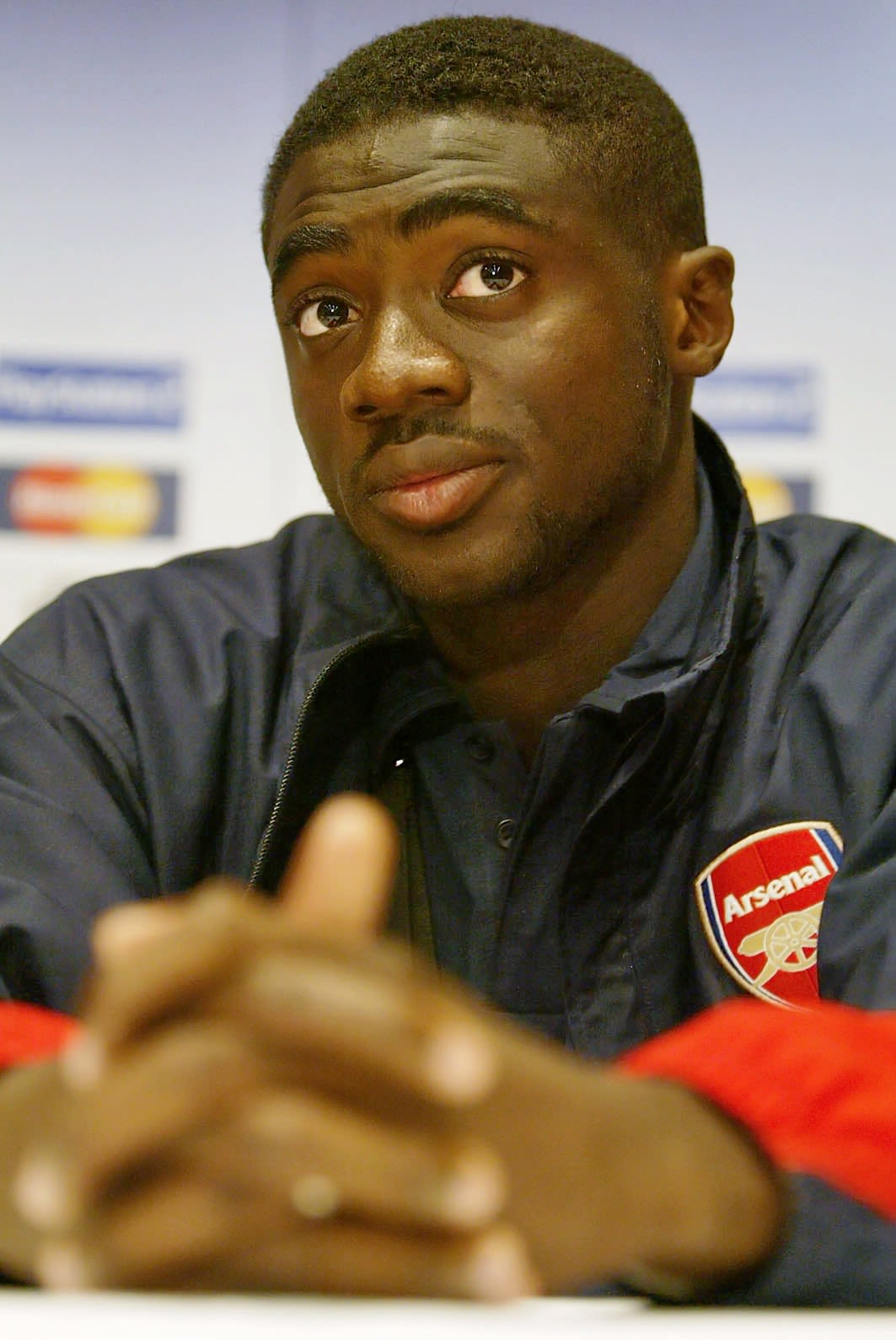
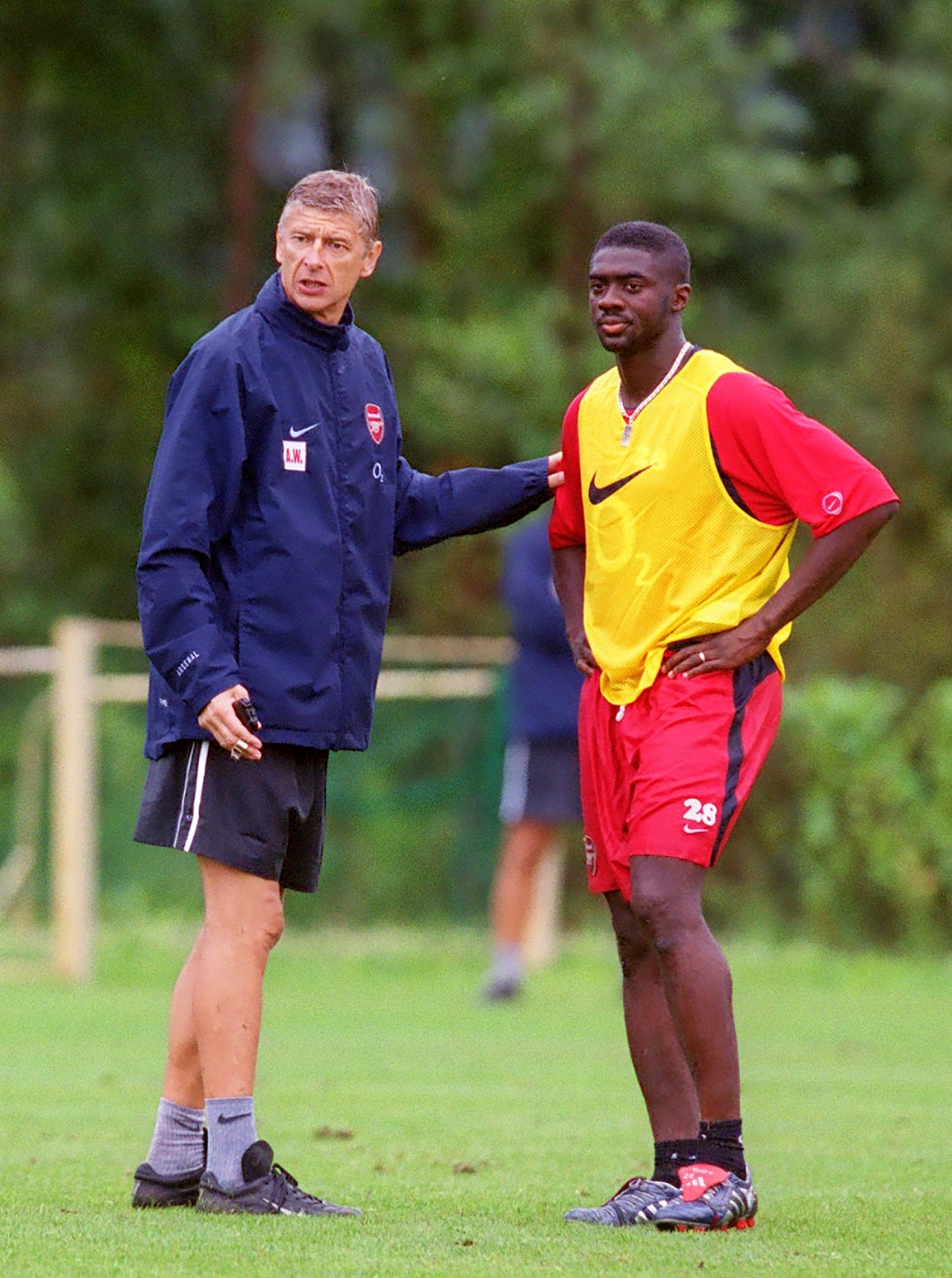
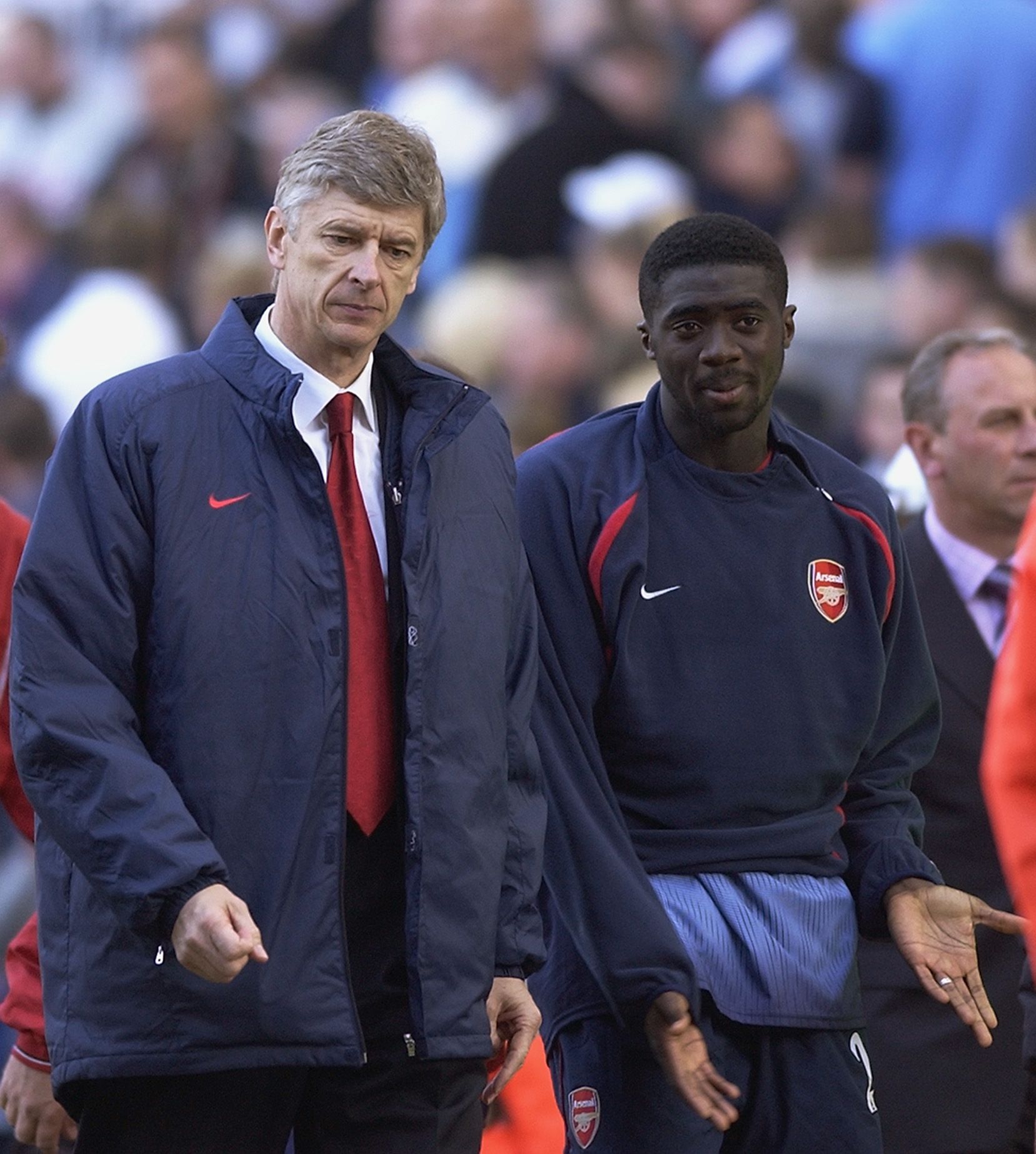
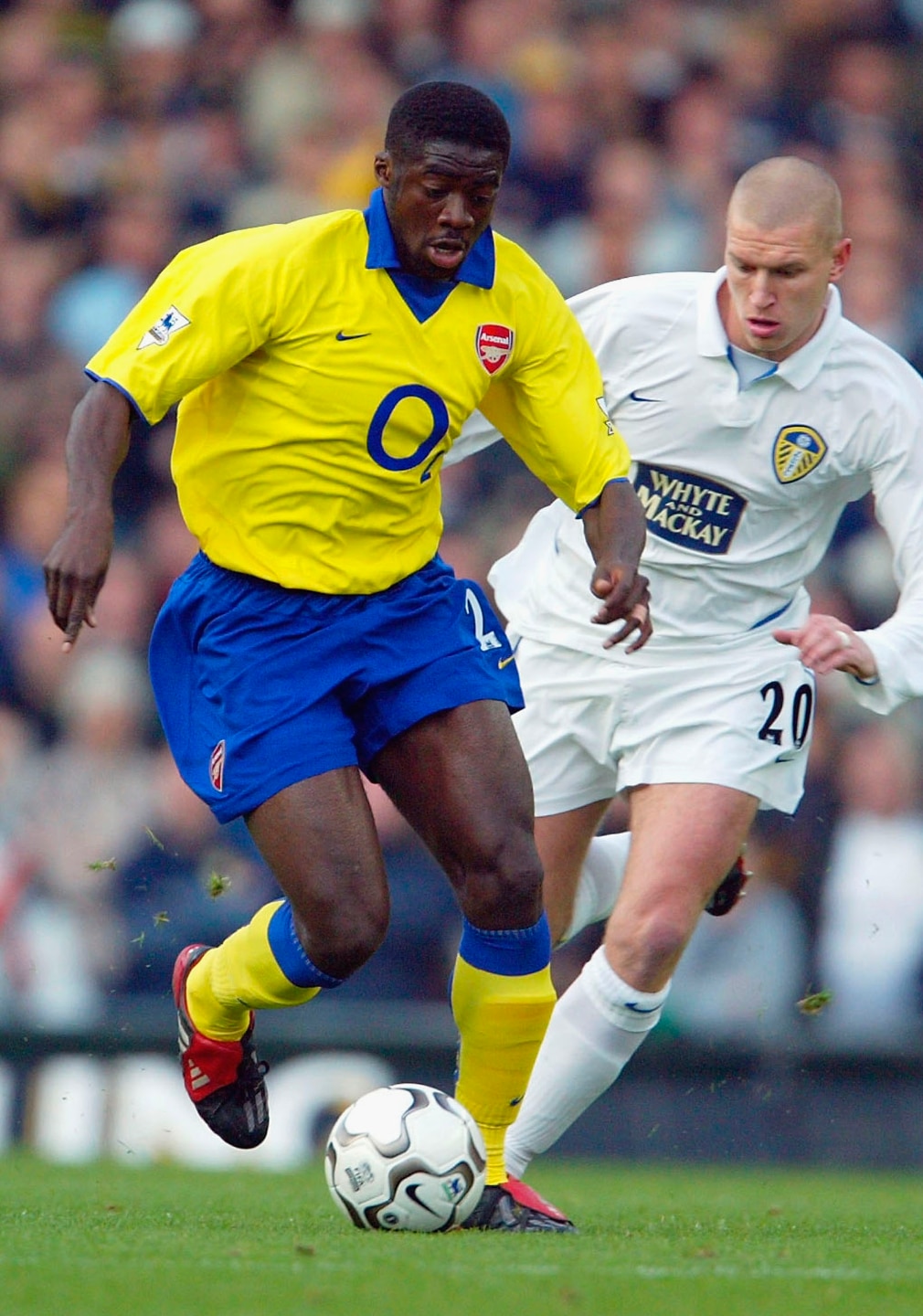
Do you still speak to Arsène?
Yes, absolutely! I spoke to him two weeks ago. In your career you have some mentors, but Arsène was a father to me.
Did you think you had a different perspective and attitude having come straight from African football, and not via Europe?
Yes. In Africa we are generous and we are happy even to have a little. So when I came, I wasn’t thinking about money or the glamorous life of a footballer – I just wanted to have a career.
Of course I wanted to look after my family, because they were having a tough time then for sure. But I felt privileged in that new environment, and that’s the way we are. We are happy people, even when we don’t have much, and we try to smile all the time. I was very grateful for everything I had at Arsenal.
"Arsène didn’t like me doing those backflips. He said they were dangerous, so it was only for very special occasions!"

Ivory Coast didn’t qualify for the Africa Cup of Nations so you didn’t miss any action for Arsenal in the winter. Did it turn out well personally that you didn’t qualify?
Yes, exactly. When we didn’t qualify, we were very disappointed, and I loved playing for my country. But who knows, maybe I wouldn’t have got my place back at Arsenal that season if I went away for a few weeks. That’s why in life luck is so important too, and I thank Allah as well.
What are your memories of winning the league at Tottenham?
What a special day! It was incredible, one of my best memories in my career. Coming from Ivory Coast to Arsenal – people back home couldn’t believe it. But I played, and I shocked everybody, and then I won the title too.
What a precious time. I did a backflip on the pitch – I did everything! Arsène didn’t like me doing those backflips. He said they were dangerous, so it was only for very special occasions!
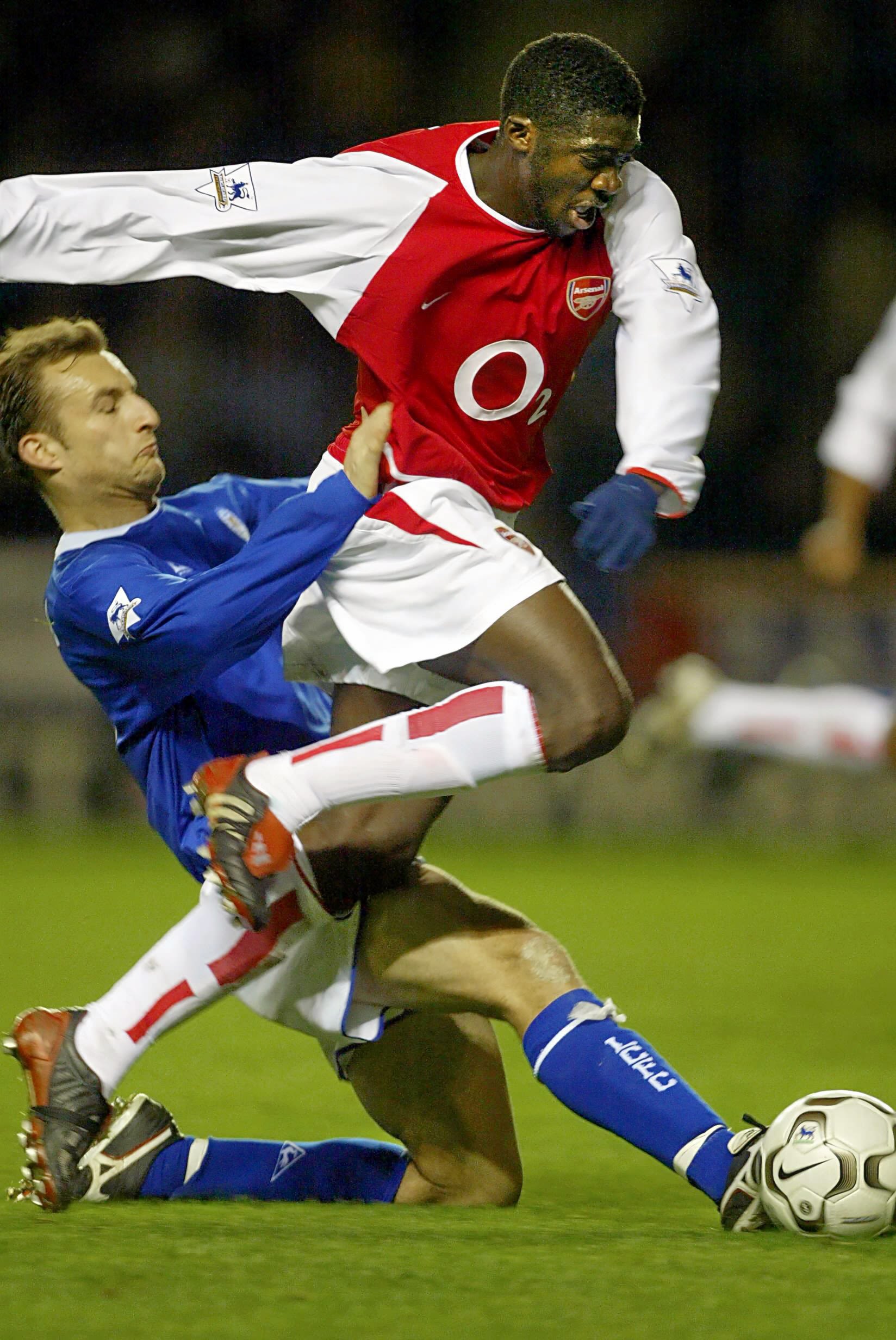
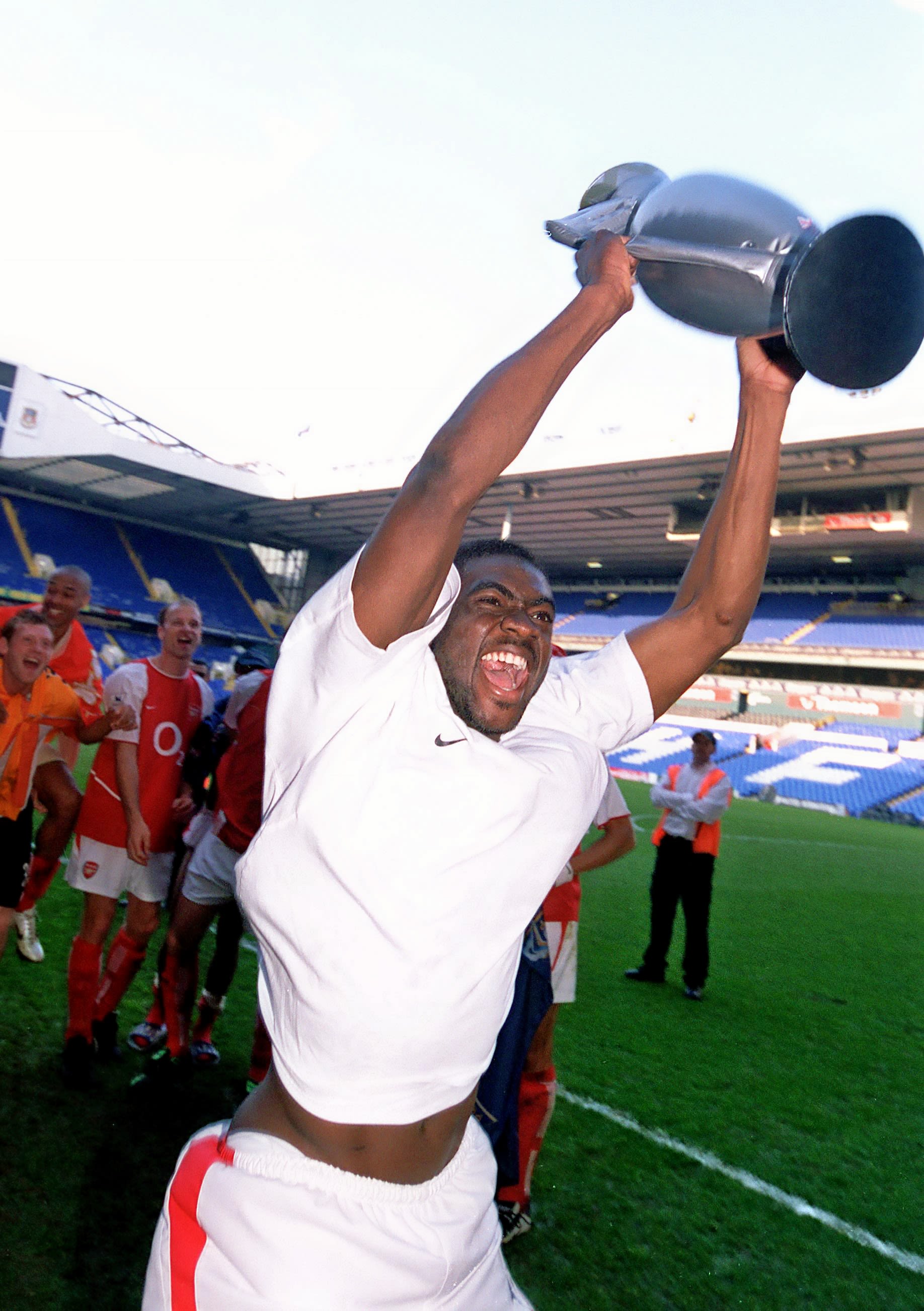
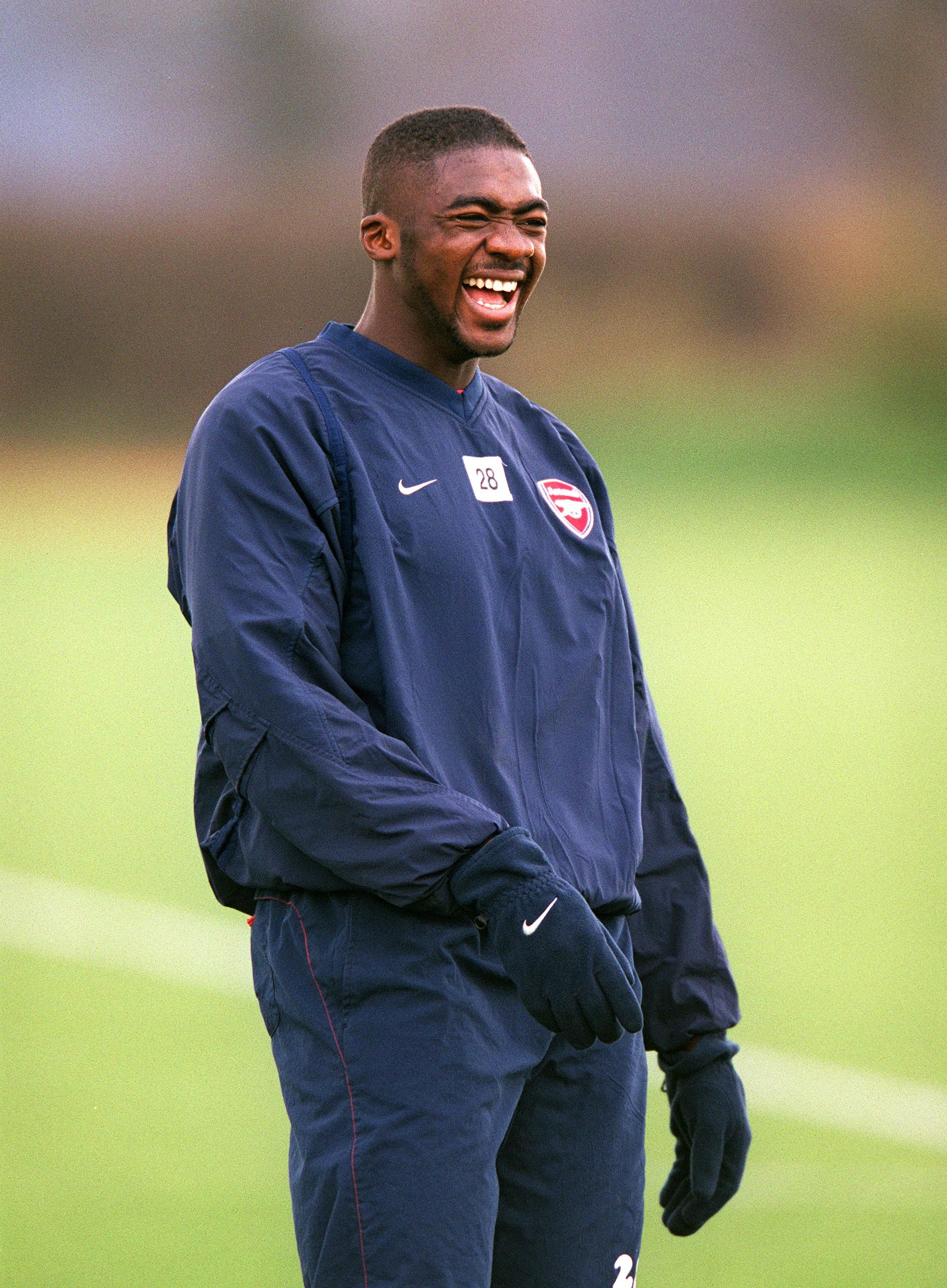
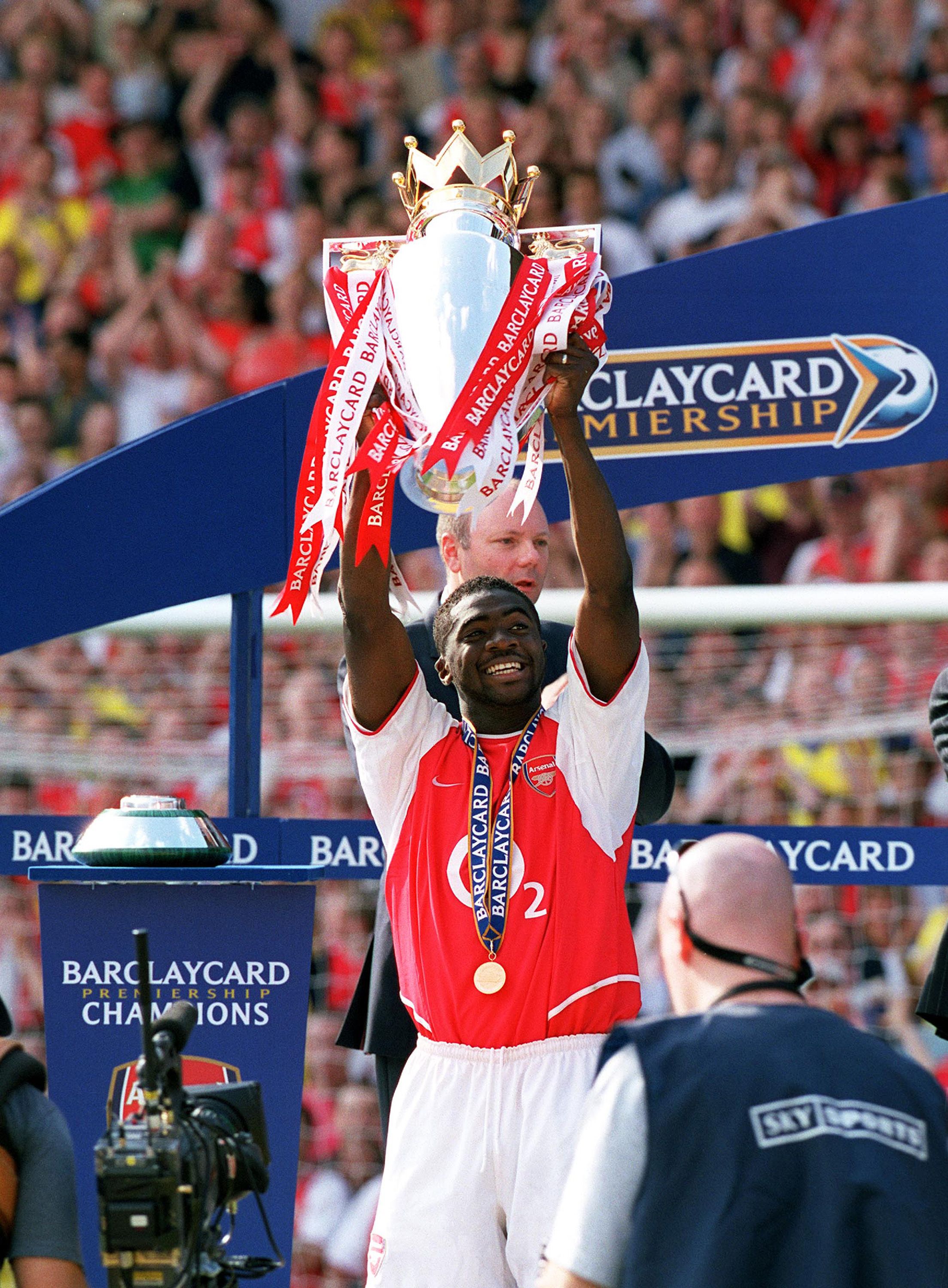
When did you start thinking about the unbeaten season?
For me it was after that Tottenham game. It was never a big conversation, though. We just wanted to win every game anyway. It was the same in training. You should have seen it, we wanted to win everything, even in training. So we just wanted to carry that on.
We didn’t have to speak about it. Sometimes the manager had to calm us down in training, we were so competitive. Honestly, I’m telling you, training was like war! There was some fighting sometimes, because everybody was desperate for their position. It was so intense – every day. A few things happened, and I was like: “wow.”
I was involved in some of them, but everybody was! I remember when we played small-sided games, and if Thierry lost, then wow! You wouldn’t be able to see any of the footballs we used, because he would have smashed them all away. They would go everywhere – he hated losing! Dennis Bergkamp too. If you got too close to him in training, then smack – you would feel an elbow in your eye. Training was war!
we wrapped up the season at home to Leicester. What was that atmosphere like?
We conceded the first goal that day, but we knew what we were capable of doing. It was intense, because we knew what was on the line, and we started a bit timid, but afterwards we took over because we had quality.
Like I said, winning was no choice for us. It was a habit. In any circumstance we wanted to win, and we’d do everything to make it happen.
